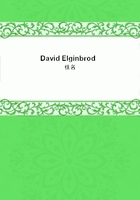
第64章
"That such men should talk such a dry, unpleasant language.""I allow it is a difficult language, Harry; and very ponderous and mechanical; but not necessarily dry or unpleasant. The Romans, you know, were particularly fond of law in everything; and so they made a great many laws for their language; or rather, it grew so, because they were of that sort. It was like their swords and armour generally, not very graceful, but very strong;--like their architecture too, Harry. Nobody can ever understand what a people is, without knowing its language. It is not only that we find all these stories about them in their language, but the language itself is more like them than anything else can be. Besides, Harry, Idon't believe you know anything about Latin yet.""I know all the declensions and conjugations.""But don't you think it must have been a very different thing to hear it spoken?""Yes, to be sure--and by such men. But how ever could they speak it?""They spoke it just as you do English. It was as natural to them.
But you cannot say you know anything about it, till you read what they wrote in it; till your ears delight in the sound of their poetry;--""Poetry?"
"Yes; and beautiful letters; and wise lessons; and histories and plays.""Oh! I should like you to teach me. Will it be as hard to learn always as it is now?""Certainly not. I am sure you will like it.""When will you begin me?"
"To-morrow. And if you get on pretty well, we will begin our nest, too, in the afternoon.""Oh, how kind you are! I will try very hard.""I am sure you will, Harry."
Next morning, accordingly, Hugh did begin him, after a fashion of his own; namely, by giving him a short simple story to read, finding out all the words with him in the dictionary, and telling him what the terminations of the words signified; for he found that he had already forgotten a very great deal of what, according to Euphra, he had been thoroughly taught. No one can remember what is entirely uninteresting to him.
Hugh was as precise about the grammar of a language as any Scotch Professor of Humanity, old Prosody not excepted; but he thought it time enough to begin to that, when some interest in the words themselves should have been awakened in the mind of his pupil. He hated slovenliness as much as any one; but the question was, how best to arrive at thoroughness in the end, without losing the higher objects of study; and not how, at all risks, to commence teaching the lesson of thoroughness at once, and so waste on the shape of a pin-head the intellect which, properly directed, might arrive at the far more minute accuracies of a steam-engine. The fault of Euphra in teaching Harry, had been that, with a certain kind of tyrannical accuracy, she had determined to have the thing done--not merely decently and in order, but prudishly and pedantically; so that she deprived progress of the pleasure which ought naturally to attend it. She spoiled the walk to the distant outlook, by stopping at every step, not merely to pick flowers, but to botanise on the weeds, and to calculate the distance advanced. It is quite true that we ought to learn to do things irrespective of the reward; but plenty of opportunities will be given in the progress of life, and in much higher kinds of action, to exercise our sense of duty in severe loneliness. We have no right to turn intellectual exercises into pure operations of conscience: these ought to involve essential duty; although no doubt there is plenty of room for mingling duty with those; while, on the other hand, the highest act of suffering self-denial is not without its accompanying reward. Neither is there any exercise of the higher intellectual powers in learning the mere grammar of a language, necessary as it is for a means. And language having been made before grammar, a language must be in some measure understood, before its grammar can become intelligible.
Harry's weak (though true and keen) life could not force its way into any channel. His was a nature essentially dependent on sympathy. It could flow into truth through another loving mind: left to itself, it could not find the way, and sank in the dry sand of ennui and self-imposed obligations. Euphra was utterly incapable of understanding him; and the boy had been dying for lack of sympathy, though neither he nor any one about him had suspected the fact.